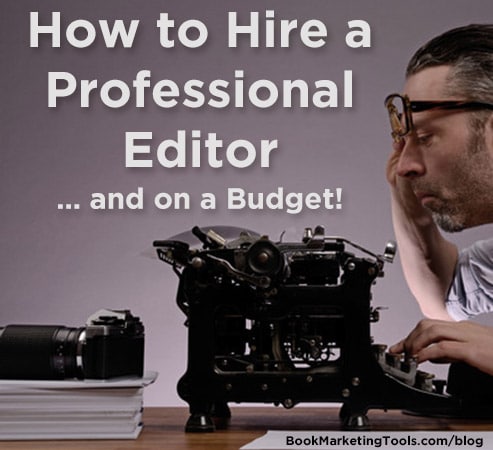Regardless of whether you’re an author planning on working with a publishing house or are doing it by yourself, you need a trained set of eyes looking at your manuscript before you can claim it’s done.
The biggest problems most new and emerging writers face today is knowing who to trust and balancing a budget with their needs (and that includes no budget).
Working with Little to No Budget
- First and foremost, if you haven’t joined a local writers group who offer critiques then do it now. It doesn’t matter if your group is large or small, just make sure they appreciate your genre of choice and are comprised of authors at various stages of writing prowess. You don’t want to join a group of all professionals, neither do you want to be in a ‘beginners only’ group. If you only belong to one writers group, make sure the variety is there. You want to learn from the ‘big wigs’ who’ve taken all the courses and already have writing published, and you’ll want the emotional support from others still working on a learning curve to know, quite frankly, that you’re not alone.
Critique Based Writing Groups can do two things for you:
- Provide you with long-term support working article-by-article or chapter-by-chapter with you.
- Give you access to seasoned authors open to looking at your entire manuscript – sometimes for free, sometimes at a great discount.
These groups can help with all stages of the editing process from substantive to stylistic to copy editing.
- Second, consider joining an online writers group. These manifest in various forms but often serve you best when they’re genre specific. Do a little research before you settle on any one group and always ‘listen in’ on critiques before offering your own or asking for one. You need to get the lay of the land and make sure that this is actually the right group for you. It’s often hit-and-miss to find professional advice on a regular basis, but it’s not impossible.
Online Writing Groups to consider:
- Goodreads – Beta Reading Groups (offer substantive editing advice)
- Wattpad – Allows you to post your work & gain general feedback (mostly substantive editing)
- Scribophile – Online writing workshop & writers’ community (all stages of editing)
- Inked Voices – Workshop your writing in small private writing groups (all stages of editing)
- Critique Circle – A workshop environment based on the pay-it-forward ideal (all stages of editing)
These are by no means the best options available nor the only options, just a few well-known ones to help you get your feet wet. Some of them are free and others have low cost monthly/yearly fees.
Working with a Moderate to Large Budget
There are a variety of ways to find good editors. Regardless of which avenue you chose, doing your homework on any potential editor is a must; the more time and effort you put in, the more you’ll get out of it.
Finding an Editor:
- Go to the acknowledgement section of several books by authors you like who share your genre and see if they list who their editor is. Write the name down and start a list.
- If you read books published by small presses or Indie Authors, check out their websites to see if they offer editing services. Many authors take on several editing clients a year in order to supplement their writing income.
- Ask the published authors in your writers’ group(s) who they use/recommend. Word of mouth rarely leads you down a bad path.
- Check out online contract services like Upwork and Fiverr. Be careful with this route. You can see an amazing deal, but if you don’t properly research the capabilities of these freelancers, you might get less than what you paid for.
- Visit an accredited Writers Association (like RWA, SFFWA, WUC, etc.) and check out their listings for available freelance editors.
When it comes to hiring a professional editor, there are all kinds of sneaky ways to find them hidden in amongst free and low-cost options. What you need to realize is the difference between a professional editor and someone with good grammar. Asking your mother’s best friend to proofread or copy edit your manuscript because she’s an English Teacher/Legal Secretary/Administrative Assistant/etc. is different than working with an editor who is familiar with the Chicago Manual of Style, or any other manual or guide recognized by the book publishing industry in your country. If you want to make a serious impression on publishers, agents, and readers then you need to do your research and make sure that the last person who edits your work can honestly claim to know what industry standards are.
They’re out there. And if you look hard enough or talk to the right people, you’ll find the good ones – even when you’re working on a budget.
MJ Moores is an author and freelance editor. Her love of speculative fiction shines through in her sci-fi/fantasy series The Chronicles of Xannia and her non-fiction e-books cover topics from marketing for beginners, to Goodreads, and publishing options. Connect with MJ online at her Author Website and Infinite Pathways Press.

